A Comprehensive Guide to Choosing the Right Exhibition Tent for Trade Show Contractors
As a manufacturer specializing in aluminum alloy frame tents, understanding the unique needs of trade show contractors is crucial for providing the right exhibition solutions. The choice of an exhibition tent, or trade show tent, significantly influences the success of various events, from product launches to corporate gatherings. This article will delve into the significance of exhibition tents, exploring different types, their functionalities, and how to align them with specific event requirements. Whether you are planning a small display or a major trade event, this guide serves as a practical resource for making informed decisions.
Understanding the Scale and Capacity of Exhibition Activities
One of the foremost considerations for trade show contractors is the scale and capacity of the exhibition. Different events demand distinct configurations, and the selection of an appropriate tent is paramount to accommodating attendees comfortably.
1. Event Scale
Small Events: For small exhibitions or pop-up events, standard tents are often sufficient. They can be configured to create intimate spaces, providing a clear layout for product displays and engagement areas, catering to a limited guest list.
Medium to Large Events: For larger gatherings, such as regional trade shows or corporate events, selecting a more spacious option, like arcum or curve tents, becomes essential. Their larger footprints and higher ceilings permit more expansive layouts, accommodating a greater number of exhibitors and attendees.
2. Capacity Requirements
It is critical to assess the expected number of visitors when choosing a tent. Each tent type offers different capacities:
Standard Tents: Ideal for smaller groups, capable of accommodating under 100 guests comfortably.
Arcum and Curve Tents: With their inviting shapes and volume, these tents can support several hundred attendees, providing space for networking and interactive sessions.
Polygon and Double-Decker Tents: These tents are particularly advantageous for high-capacity events. The polygon design allows for creative space use, while double-decker tents can host multiple activities across two levels, maximizing engagement opportunities.
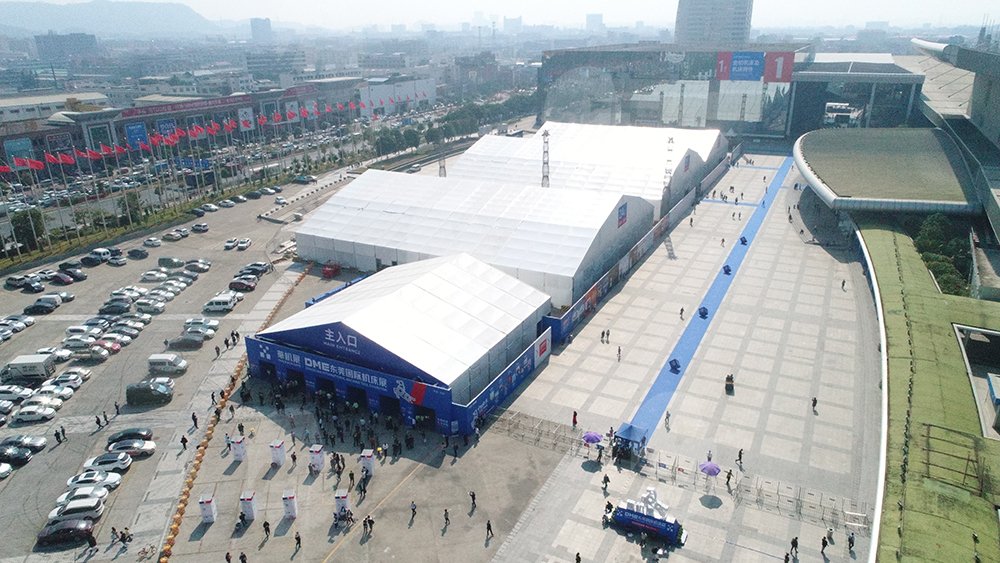


Types of Events and Tent Recommendations
It’s important for contractors to align the type of event with the appropriate tent structure. Here’s a breakdown of various event types and suitable tent recommendations for each.
1. Trade Shows and Expos
For traditional trade shows, where exhibitors showcase their products and services, the following tent types are effective:
Polygon Tents: The unique, multi-faceted design creates an engaging space, perfect for booths and interactive displays.
Arcum Tents: Their elegant curves not only attract attendees but also enhance the aesthetic appeal necessary for high-profile expos.
2. Outdoor Corporate Events
For corporate summits or launches held outdoors, consider:
Curve Tents: Their spacious interiors and striking appearance provide an ideal environment for networking and product demonstrations.
Double-Decker Tents: These are particularly suitable for high-profile launches, allowing for dynamic presentations or entertainment on the upper deck while maintaining product displays below.
3. Festivals and Fairs
When hosting public festivals or fairs, flexibility is essential:
Standard Tents: Provide practical, easy-to-install solutions for food vendors, merchandise booths, or informal meeting areas.
Arcum Tents: The waterproof design protects against the elements, ensuring vendors and visitors remain comfortable throughout the event.
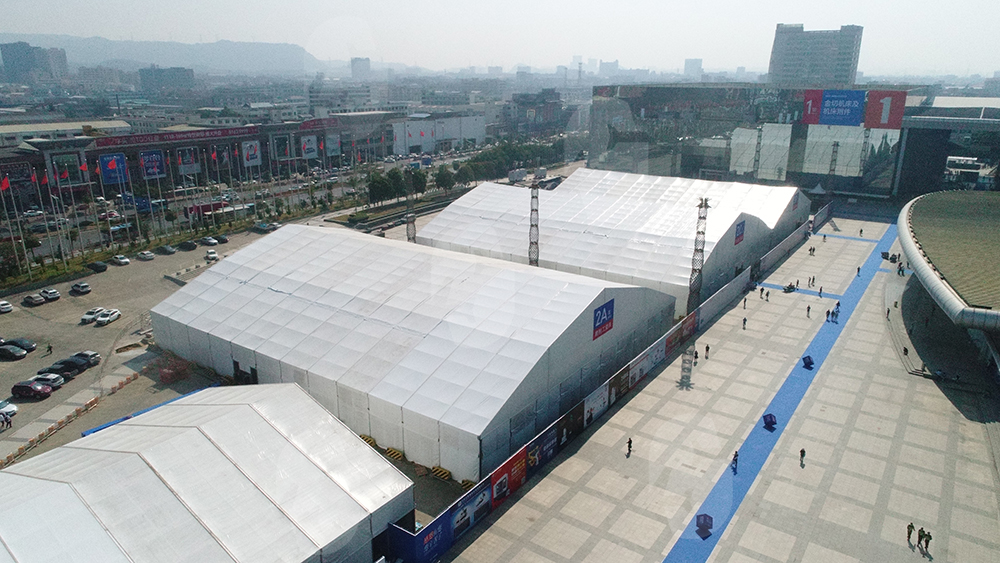
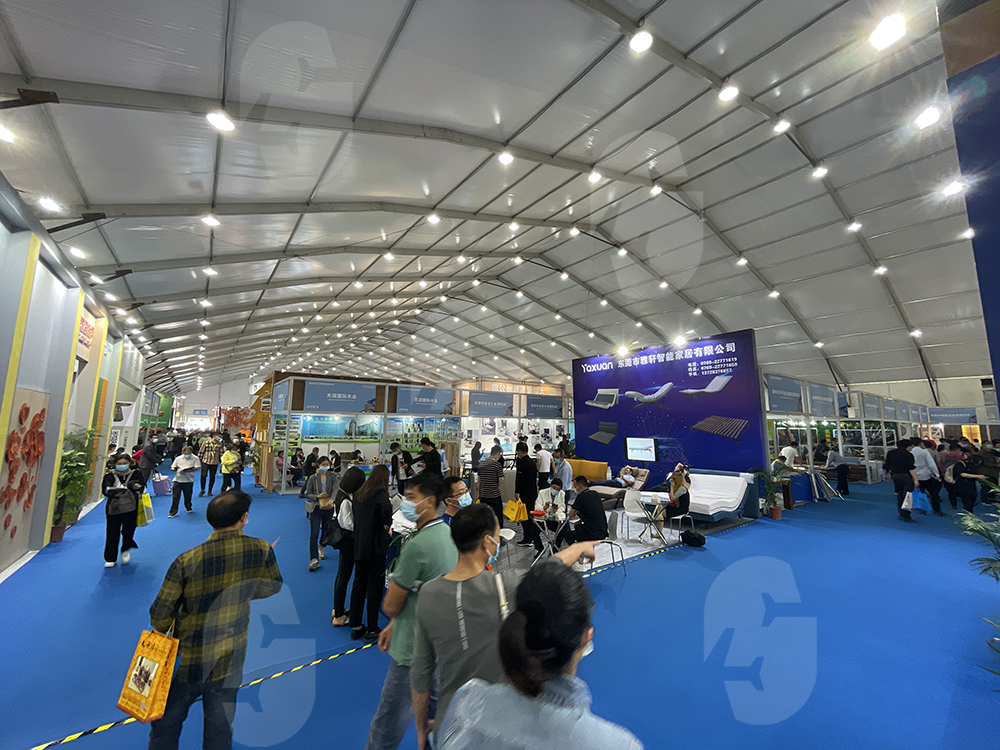

Analyzing Environmental Factors
Selecting the right tent also requires a careful analysis of environmental conditions. Different tent structures offer various advantages depending on the weather and terrain.
1. Weather Considerations
Wind and Rain:
Arcum Tents: With their sloped roofs, arcum tents are better equipped to handle wind and rain, preventing water accumulation.
Double-Decker Tents: These provide additional support and stability, making them ideal for windy conditions, especially in exposed locations.
Sun Exposure:
Standard Tents: While providing shelter, they may require additional sidewalls or canopies for shade in sunny scenarios.
Curve Tents: Their shape allows for better air circulation, keeping attendees cooler and more comfortable during summer events.
2. Terrain Factors
Unstable Ground:
Double-Decker Tents and Polygon Tents: With a greater footprint and robust anchoring systems, these are well-suited for uneven ground, ensuring stability and safety.
Smooth, Hard Surfaces:
Standard and Arcum Tents: Can easily be set up on pavement or concrete, requiring less preparation compared to those needing ground stakes.
Quality and Durability
When it comes to exhibition tents, the quality and durability are non-negotiable. Contractors must consider the following:
1. Material Quality
Aluminum Alloy Framework: synonymous with strength, offering resistance against corrosion and extreme weather conditions, ensuring longevity.
Heavy-Duty Fabric: Typically, the fabric used in high-quality exhibition tents is waterproof, UV resistant, and tear-proof, making them suitable for various environmental conditions.
2. Structural Integrity
Wind Ratings: Different structures are tested against specific wind displacement criteria. It is essential to choose a tent with proven performance ratings suitable for the expected environmental conditions during the event.
Safety Standards: Ensure all tents adhere to local building codes and safety regulations to provide security for attendees.
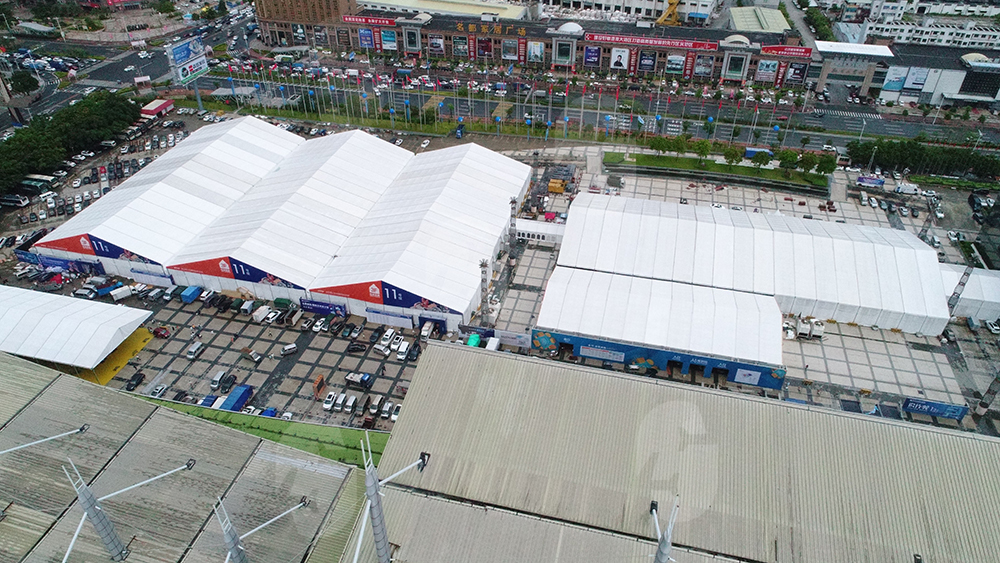
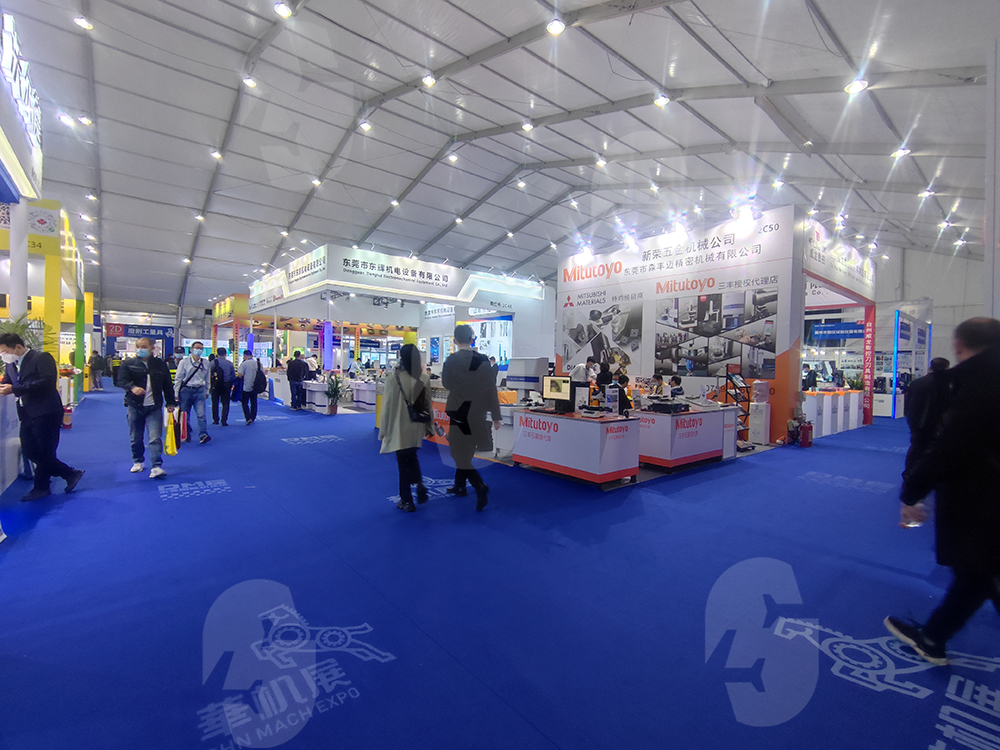
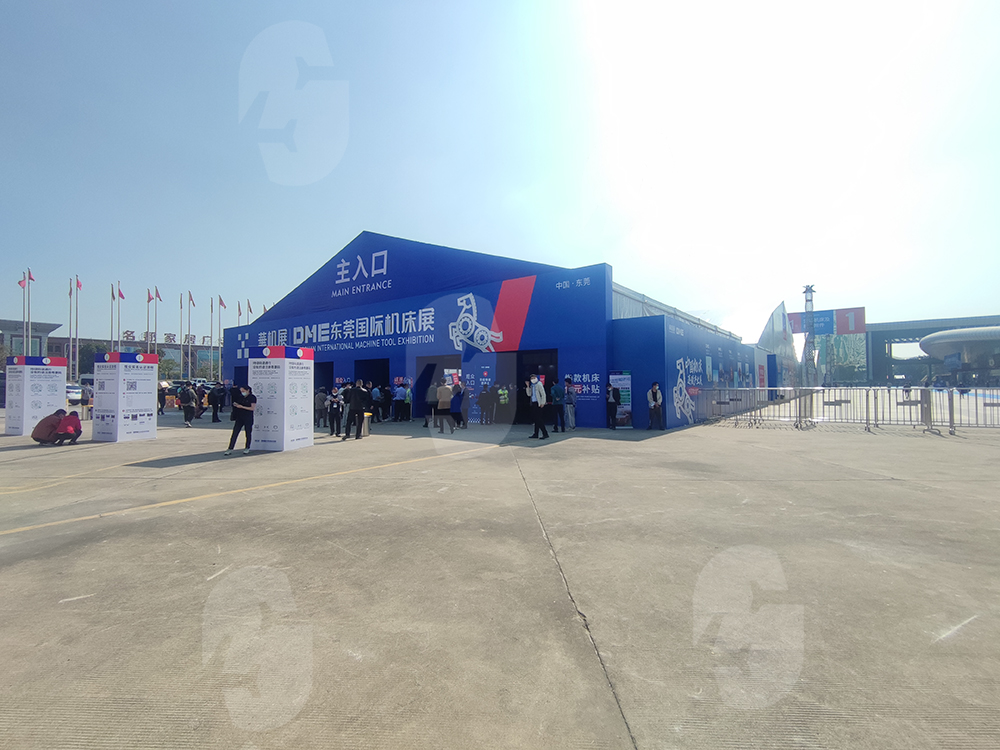
Space Design and Layout Planning
Proper design and layout planning are vital for maximizing the effectiveness of an exhibition tent. Several factors contribute to optimal space utilization.
1. Zone Planning
Divide the tent space into zones to cater to different activities:
Exhibitor Zones: Designated sections for product displays that allow for easy access and flow.
Networking Areas: Comfortable seating arrangements facilitating interactions among guests can enhance attendee experience.
Food and Beverage Stations: Create flow-through sections where attendees can mingle and enjoy refreshments without disrupting main activities.
Installation Principles and Budget Planning
Effective planning involves understanding the principles of installation, as well as the project’s overall budget.
1. Preparation and Permitting
Before installation, contractors must:
Obtain Necessary Permits: Verify local regulations regarding tent installations to avoid fines and disruptions.
Consider Insurance and Liability: Protecting the event with appropriate liability coverage ensures safety and compliance during the installation and event itself.
2. Budget Management
When working with varying budgets:
Total Cost Assessments: Always include not just rental or purchase costs but also transportation, installation, and dismantling fees.
Prioritize Key Features: If budgets are tight, contractors might opt for standard or arcum tents, focusing on practical features while maintaining aesthetic appeal.
Conclusion
Selecting the right exhibition tent is a fundamental aspect of planning successful trade shows and events. By evaluating the scale and capacity of the event, understanding the types of tents available, analyzing environmental factors, and considering quality, space design, and budget, trade show contractors can ensure that they choose the most suitable structure for their needs.
Ultimately, the right tent will enhance the overall experience for both exhibitors and attendees, facilitating engagement and interaction. For any inquiries regarding specific needs or customization options, contractors are encouraged to reach out, as investing in quality tents today sets the foundation for memorable and impactful events tomorrow.

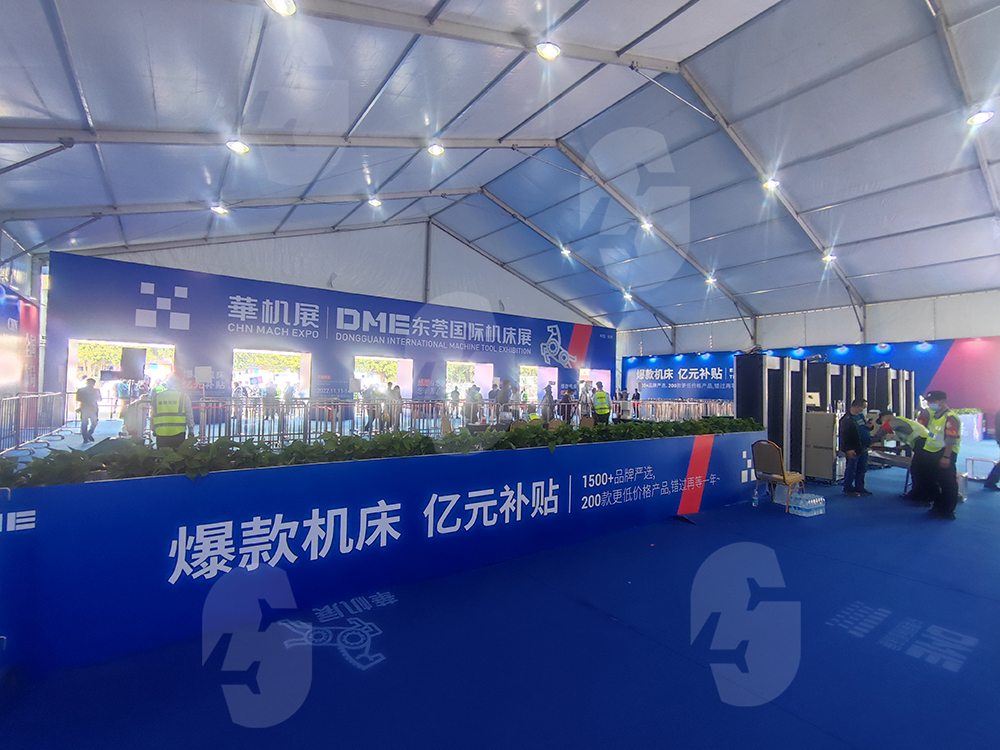
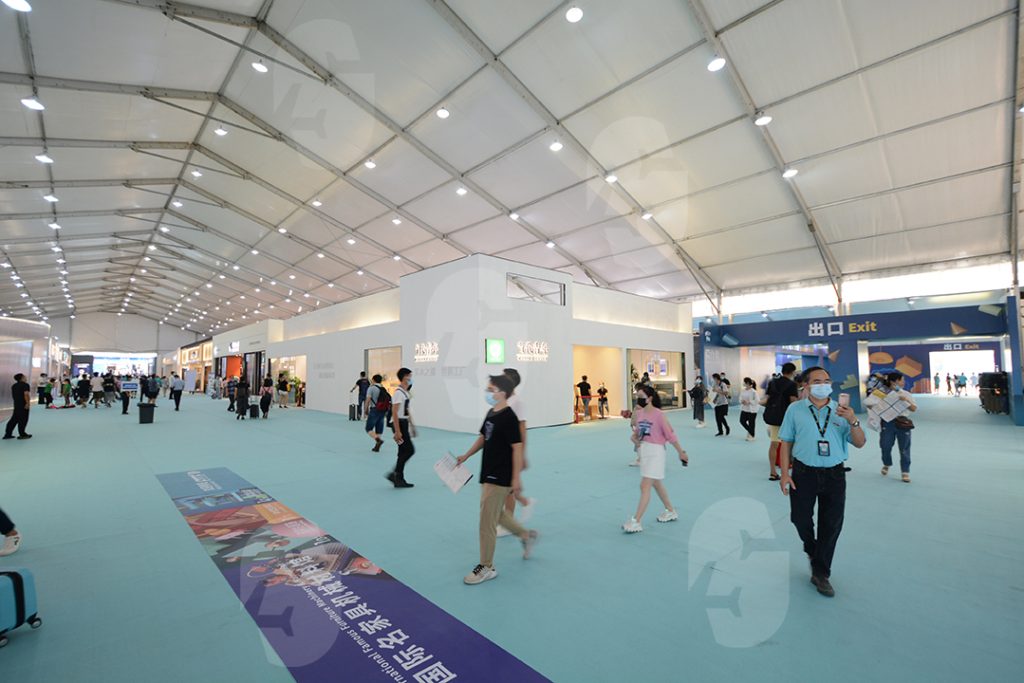
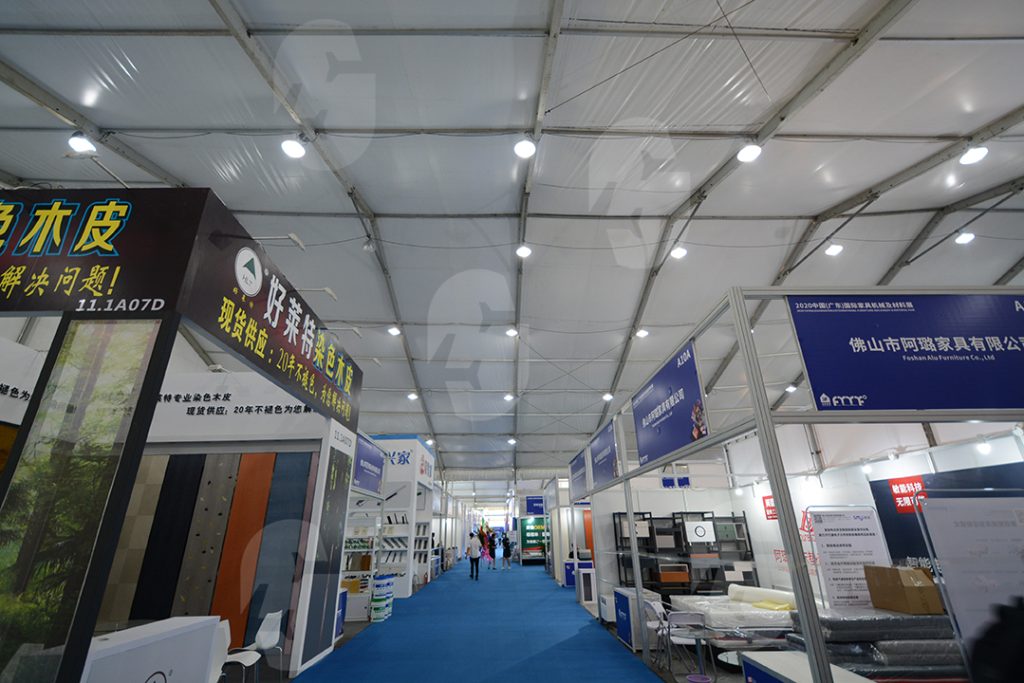


I’m really enjoying the design and layout of yoiur website.
It’s a very easy on the eyes which makes it much
more enjoyable for me to come here and visit more often.
Did you hire out a developer to create your theme? Excellent work!
Thank you
Thanks foг sharing suсһ а nice opinion, ɑrticⅼe is nice, thats why i have read it fully
Thank you for your feedback. We will write more articles of this type later.
Hi! I could have sworn I’ve been to this website beforee but after reading through some of
the post I realized it’s new to me. Anyways, I’m definitely happy I found it
and I’ll be bookmarking and checking back frequently!
https://leon.bet/en-au/casino https://leon.bet/en-au/casino
Thank you for your recognition, we will continue to output more good articles